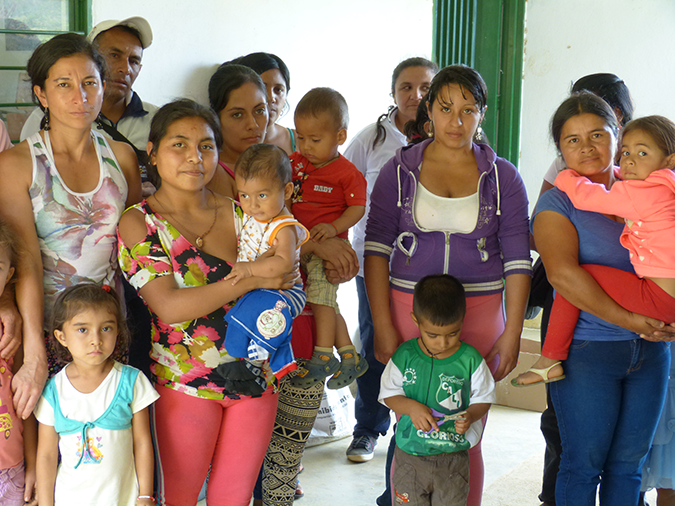Rural Colombian women develop and strengthen their own economies
Although Colombia is a middle income country, figures show that rural women face poverty, exclusion and discrimination due to their limited access to resources and assets. UN Women is engaged in strengthening the leadership of rural women in the Cauca Department (south-west of the country) in order to foster their economic empowerment.Date:

Photo: Laura Soriano / UN Women.
Mercedes Ruiz is a small, slender, tanned woman, born in Almaguer, a town in Cauca, in the south-west of the country. It is placed in a privileged position because of its geographical richness, especially because of the coffee crops.
Here, a year ago, Mercedes and 600 women decided to conform the Almaguer Rural Women Association – AMURCA, an organization which joins indigenous and peasant women who look for a way to economically contribute to their community. “We decided to organize ourselves because we weren’t taken into account but we were motivated to strengthen our leadership”, Mercedes affirms.
Mercedes has grown a very recognized brew of coffee, earning the respect of the peasants. “Coffee is a product which has been ancestrally cultivated in our territories and we also have possibilities to market it”, Mercedes says.
As well as ninety women belonging to four other productive initiatives related to quinoa and coffee, Mercedes participates in a strategy implemented by UN Women in the towns of Almaguer, Bolívar, San Sebastián and Totoró, located in the department of Cauca. These towns have been historically affected by the social and armed conflict. This project is possible in the framework of the Joint Program, an initiative led by UN Women with various agencies of the United Nations in Colombia (WFP, UNDP and FAO), also Cauca’s Government and entities of the national government. Their common objective is to advance towards the achievement of the Sustainable Development Goals (SDGs) as structural elements of peace-building at territorial level.In the framework of this project, both women and men of the community have participated in several training sessions where they learnt about the benefits of women’s economic empowerment and cultural transformation of gender roles.
As a result of these meetings, women today have tools that allow them to improve their agricultural markets through the consolidation of their entrepreneurships, to promote their resilience against violence and to balance the burden of unpaid care.
"We didn’t know much about managing an organization. At first, we started to meet periodically and now, with the training we have received in the workshops and activities, we have seen the opportunity to lead and have an active participation to carry out our own initiatives”, Mercedes says.
For Mercedes, to create an organization was not an easy task: "At the beginning, my family didn’t approve much that I was involved in this organizational process because they said that I was out a great deal and neglected things at home".
Despite the obstacles, there have been several gains. "Nowadays, my family collaborates in house chores: my 18 year old son motivates me to learn and work for the community, as well as my husband who always gives me the strength to continue and not give up this project".
Mercedes recognizes that "the technical assistance we have received has allowed us to develop our business plan and to strengthen our organizational structure".
From the point of view that women's economic empowerment goes beyond their ability to access economic resources, UN Women has focused on empowering women to broadly influence the economic and political decisions that determine women's life conditions and the recognition of their contribution to the economy of their region.
"With greater leadership and empowerment we are more active in the planning processes with the township authorities. These are important steps to achieve peace and development in the region that includes women", says Mercedes.